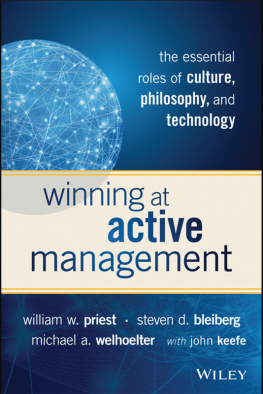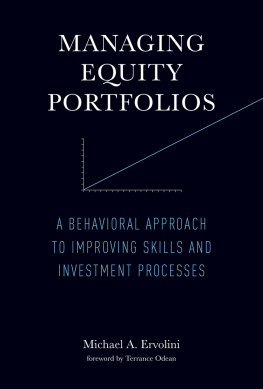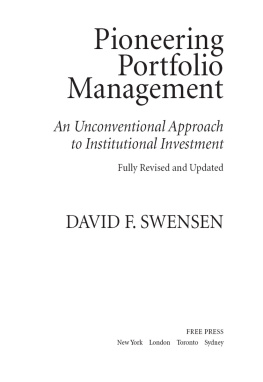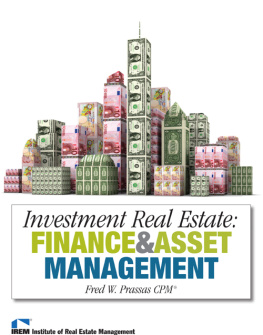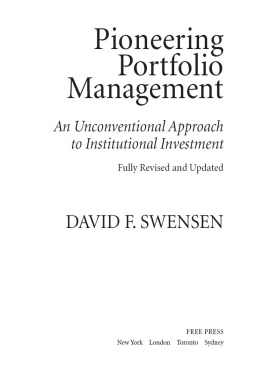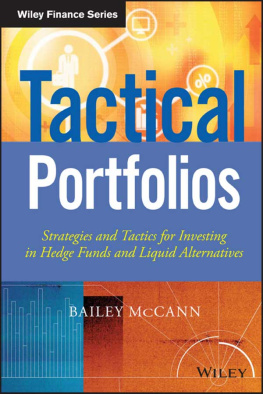William W. Priest - Winning at Active Management: The Essential Roles of Culture, Philosophy, and Technology
Here you can read online William W. Priest - Winning at Active Management: The Essential Roles of Culture, Philosophy, and Technology full text of the book (entire story) in english for free. Download pdf and epub, get meaning, cover and reviews about this ebook. year: 2016, publisher: Wiley, genre: Business. Description of the work, (preface) as well as reviews are available. Best literature library LitArk.com created for fans of good reading and offers a wide selection of genres:
Romance novel
Science fiction
Adventure
Detective
Science
History
Home and family
Prose
Art
Politics
Computer
Non-fiction
Religion
Business
Children
Humor
Choose a favorite category and find really read worthwhile books. Enjoy immersion in the world of imagination, feel the emotions of the characters or learn something new for yourself, make an fascinating discovery.
- Book:Winning at Active Management: The Essential Roles of Culture, Philosophy, and Technology
- Author:
- Publisher:Wiley
- Genre:
- Year:2016
- Rating:4 / 5
- Favourites:Add to favourites
- Your mark:
Winning at Active Management: The Essential Roles of Culture, Philosophy, and Technology: summary, description and annotation
We offer to read an annotation, description, summary or preface (depends on what the author of the book "Winning at Active Management: The Essential Roles of Culture, Philosophy, and Technology" wrote himself). If you haven't found the necessary information about the book — write in the comments, we will try to find it.
Winning at Active Management conducts an in-depth examination of crucial issues facing the investment management industry, and will be a valuable resource for asset managers, institutional consultants, managers of pension and endowment funds, and advisers to individual investors. Bill Priest, Steve Bleiberg and Mike Welhoelter all experienced investment professionals, consider the challenges of managing portfolios through complex markets, as well as managing the cultural and technological complexities of the investment business.
The books initial section highlights the importance of culture within an investment firm the characteristics of strong cultures, the imperatives of communication and support, and suggestions for leading firms through times of both adversity and prosperity.
It continues with a thorough discussion of active portfolio management for equities. The ongoing debate over active versus passive management is reviewed in detail, drawing on both financial theory and real-world investing results. The book also contrasts traditional methods of portfolio management, based on accounting metrics and price-earnings ratios, with Epoch Investment Partners philosophy of investing on free cash flow and appropriate capital allocation.
Winning at Active Management closes with an inquiry into the crucial and growing role of technology in investing. The authors assert that the most effective portfolio strategies result from neither pure fundamental nor quantitative methods, but instead from thoughtful combinations of analyst and portfolio manager experience and skill with the speed and breadth of quantitative analysis. The authors illustrate the point with an example of an innovative Epoch equity strategy based on economic logic and judgment, but enabled by information technology.
Winning at Active Management also offers important insights into selecting active managers the market cycle factors that have held back many managers performance in recent years, and the difficulty of identifying those firms that truly possess investment skill. Drawing on behavioral economic theory and empirical research, the book makes a convincing case that many active investment managers can and do generate returns superior to those of the broad market.
William W. Priest: author's other books
Who wrote Winning at Active Management: The Essential Roles of Culture, Philosophy, and Technology? Find out the surname, the name of the author of the book and a list of all author's works by series.

